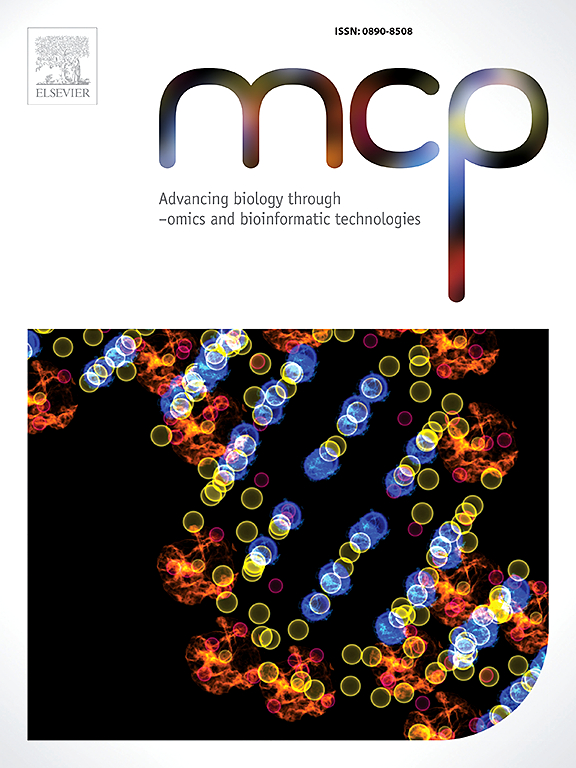洞察利用人工智能技术作为体外诊断算法的潜力,利用微生物细胞外囊泡。
IF 2.3
3区 生物学
Q3 BIOCHEMICAL RESEARCH METHODS
引用次数: 0
摘要
最近,微生物组作为下一代因素在医疗保健领域受到极大关注。然而,我们对微生物基本机制的了解仍有很大差距,尤其是对微生物群与宿主之间交换的效应微生物产物的了解。因此,对微生物胞外囊泡(MEVs)的研究日益增多。微生物胞外囊泡只有纳米大小,可在体内循环并渗透到血液中,携带多种信息。因此,它们越来越多地被应用于医疗领域。此外,人工智能技术也被应用于医疗领域。人们正在探索将 MEV 与人工智能技术相结合,开发基于算法的体外诊断(IVD)。因此,本研究旨在回顾 MEV 与人工智能技术的结合,将其作为个性化医疗的诊断工具。本文回顾了由各种人类样本和人工智能技术开发的基于 MEV 的算法。此外,大多数基于 MEV 的诊断模型都显示出较高的临床性能。有几个重要因素对准确诊断至关重要。首先,根据特定疾病优化样本类型至关重要。其次,诊断能力更强的人工智能技术能产生更准确的结果。最后,加入额外的标记物可以提高诊断能力。然而,原位应用这一工具面临着一些限制,包括方法标准化、样本量和分析技术。未来,我们预计对 MEV 的研究将推进我们对其在疾病中作用的理解,并为精准医疗战略奠定基础。本文章由计算机程序翻译,如有差异,请以英文原文为准。
Insight into the potential of algorithms using AI technology as in vitro diagnostics utilizing microbial extracellular vesicles
Recently, the microbiome has been gaining significant attention in the healthcare sector as a next-generation factor. However, there remains a substantial gap in our understanding of the fundamental mechanisms of microbes, particularly regarding the effector microbial products exchanged between the microbiota and the host. Consequently, research on microbial extracellular vesicles (MEVs) has increased. MEVs, which are nano-sized, can circulate throughout the body and penetrate the bloodstream, carrying diverse information. Consequently, they are increasingly being utilized in medical applications. Additionally, AI technologies are being utilized in medicine. The combination of MEVs and AI technology is being explored for the development of algorithm-based in vitro diagnostics (IVD). Therefore, this study aims to review the integration of MEVs and AI technology as diagnostic tools for personalized medicine. This paper reviewed the MEV-based algorithms developed by a variety of human samples and AI technology. Additionally, most of MEV-based diagnostic models showed higher clinical performance. Several important factors are crucial for accurate diagnosis. First, optimizing sample types according to specific diseases is essential. Second, AI technology with higher diagnostic power yields more accurate results. Finally, incorporating additional markers can enhance diagnostic power. However, applying this tool in situ faces several limitations, including method standardization, sample size, and analysis techniques. In the future, we anticipate that research on MEVs will advance our understanding of their role in disease and establish the foundation for precision medicine strategies.
求助全文
通过发布文献求助,成功后即可免费获取论文全文。
去求助
来源期刊

Molecular and Cellular Probes
生物-生化研究方法
CiteScore
6.80
自引率
0.00%
发文量
52
审稿时长
16 days
期刊介绍:
MCP - Advancing biology through–omics and bioinformatic technologies wants to capture outcomes from the current revolution in molecular technologies and sciences. The journal has broadened its scope and embraces any high quality research papers, reviews and opinions in areas including, but not limited to, molecular biology, cell biology, biochemistry, immunology, physiology, epidemiology, ecology, virology, microbiology, parasitology, genetics, evolutionary biology, genomics (including metagenomics), bioinformatics, proteomics, metabolomics, glycomics, and lipidomics. Submissions with a technology-driven focus on understanding normal biological or disease processes as well as conceptual advances and paradigm shifts are particularly encouraged. The Editors welcome fundamental or applied research areas; pre-submission enquiries about advanced draft manuscripts are welcomed. Top quality research and manuscripts will be fast-tracked.
 求助内容:
求助内容: 应助结果提醒方式:
应助结果提醒方式:


